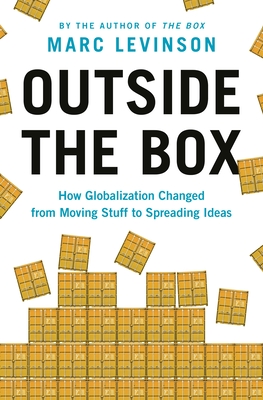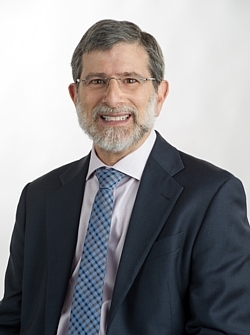

 Princeton University Press
Princeton University Press
Outside the Box: How Globalization Changed from Moving Stuff to Spreading Ideas


Key Metrics
- Marc Levinson
- Princeton University Press
- Paperback
- 9780691227092
- -
- -
- Business & Economics > International - Economics & Trade
- English
 Secure Transaction
Secure TransactionBook Description
From the acclaimed author of The Box, a new history of globalization that shows us how to navigate its future
Globalization has profoundly shaped the world we live in, yet its rise was neither inevitable nor planned. It is also one of the most contentious issues of our time. While it may have made goods less expensive, it has also sent massive flows of money across borders and shaken the global balance of power. Outside the Box offers a fresh and lively history of globalization, showing how it has evolved over two centuries in response to changes in demographics, technology, and consumer tastes.
Marc Levinson, the acclaimed author of The Box, tells the story of globalization through the people who eliminated barriers and pursued new ways of doing business. He shows how the nature of globalization changed dramatically in the 1980s with the creation of long-distance value chains. This new type of economic relationship shifted manufacturing to Asia, destroying millions of jobs and devastating industrial centers in North America, Europe, and Japan. Levinson describes how improvements in transportation, communications, and computing made international value chains possible, but how globalization was taken too far because of large government subsidies and the systematic misjudgment of risk by businesses. As companies began to account properly for the risks of globalization, cross-border investment fell sharply and foreign trade lagged long before Donald Trump became president and the coronavirus disrupted business around the world.
In Outside the Box, Levinson explains that globalization is entering a new era in which moving stuff will matter much less than moving services, information, and ideas.
Author Bio
Marc Levinson began as a journalist, reporting on business for Time magazine and the Bureau of National Affairs (BNA) and serving as editorial director of the daily Journal of Commerce in New York. After several years writing about business and economics for Newsweek, he became finance and economics editor of The Economist in London. In 1999 Marc joined the predecessor to JP Morgan Chase, where he created a unique industry economics function that married economic research with stock and bond analysis and developed a line of environmental research products for institutional investor clients. He has had stints advising Congress on transportation and industry issues and serving as senior fellow for international business at the Council on Foreign Relations, and has consulted for a number of businesses and public agencies.
Marc’s career has been eclectic, but with a common thread: his professional life has centered on making complex economic issues understandable to the general public. Much of his work has been international in focus, dealing with international trade and globalization, international finance and financial regulation, and energy and environmental issues that cross international borders.
He has written six books that merge my interests in economics and business strategy with historical research. He has also written many articles for leading publications, such as Harvard Business Review and Foreign Affairs, and contributed historical pieces to Echoes, the former economic history blog at Bloomberg.com. He frequently reviews books for The Wall Street Journal and other publications.
Marc earned a bachelor’s degree from Antioch College, a master’s degrees from Georgia State University and the Woodrow Wilson School at Princeton University, and a doctorate from the City University of New York.
Videos
No Videos
Community reviews
Write a ReviewNo Community reviews